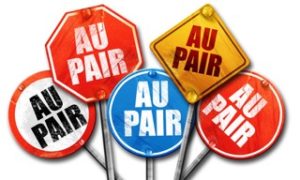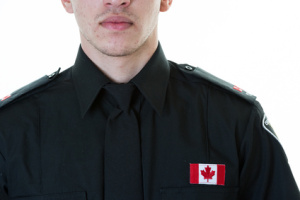Your Legal Responsibilities when Hosting an Au Pair
It’s been a while since we wrote a blog about the legal responsibilities of hosting an Au Pair. From time to time we see a wave of host families commenting on social media about the “pocket money” they pay their Au Pair or the Au Pair who says she doesn’t get a pay stub and is charged $500/mth for room and board. While these comments make us frustrated and sad for the Au Pairs, we do believe these are sometimes honest mistakes and there is a need to educate people on what their responsibilities are when hosting an Au Pair.

Au Pairs and Work in Canada
The term “work” is broadly defined to mean any activity for which wages are paid or commission is earned, or that is in direct competition with the activities of Canadian citizens or permanent residents in the Canadian labour market (e.g. childcare providers, nannies and live-in caregivers). Although a broad definition, it is capable of capturing a wide range of work and work-related activities and occupations including that of Au Pairs. Au Pairs are not considered exempt from this definition in Canada because of ‘cultural exchange’ as their primary function for payment is childcare. There’s no way around this in the eyes of Citizenship and Immigration Canada or the Canadian Revenue Agency.
You must be paying your Au Pair at least minimum wage and remitting appropriate deductions to CRA.
Citizenship and Immigration Canada/Canada Border Services Agency
 The CIC and CBSA are the primary bodies that enforce Immigration Laws in Canada. Part of the CBSA’s mandate is to enforce the Immigration and Refugee Protection Act. Enforcement of this Act is not something that CIC/CBSA takes lightly or overlooks. CBSA will not hesitate to deny entry to an Au Pair who has arrived in Canada without the proper working holiday visa. Lying to the CBSA regarding one’s entry/intent to work in Canada is a very serious offence. Counselling an Au Pair to lie or omit details about being an Au Pair is also a very serious offence. CBSA has no problem refusing entry to Canada if they believe that someone is not being truthful as to why they are coming into the country. There have been many families who have been anxiously awaiting the arrival of their new Au Pair only to have them denied entry to Canada and sent away on the next flight home. Think seriously about the position this could potentially put your family in along with your Au Pair! Not only would your family be left in the terrible situation of not having childcare, your Au Pair would be denied entry to Canada (and refused re-entry for one year or more) and would be forced to pay their own way back home.
The CIC and CBSA are the primary bodies that enforce Immigration Laws in Canada. Part of the CBSA’s mandate is to enforce the Immigration and Refugee Protection Act. Enforcement of this Act is not something that CIC/CBSA takes lightly or overlooks. CBSA will not hesitate to deny entry to an Au Pair who has arrived in Canada without the proper working holiday visa. Lying to the CBSA regarding one’s entry/intent to work in Canada is a very serious offence. Counselling an Au Pair to lie or omit details about being an Au Pair is also a very serious offence. CBSA has no problem refusing entry to Canada if they believe that someone is not being truthful as to why they are coming into the country. There have been many families who have been anxiously awaiting the arrival of their new Au Pair only to have them denied entry to Canada and sent away on the next flight home. Think seriously about the position this could potentially put your family in along with your Au Pair! Not only would your family be left in the terrible situation of not having childcare, your Au Pair would be denied entry to Canada (and refused re-entry for one year or more) and would be forced to pay their own way back home.
Employers who illegally employ foreign nationals are liable to fines of up to $50,000 and terms of imprisonment of up to two years. If there is evidence of misrepresentation on the part of the employer, the penalties can be as high as $100,000 and five years. There has been a lot of negative press in recent years regarding foreign workers in Canada and the illegal use of Au Pairs is no different. Please see the articles at the end of this blog for further information.
The Canadian Revenue Agency
Without a valid working visa, an Au Pair is ineligible to get a Social Insurance Number (SIN) and is unable to work. Families therefore cannot claim their childcare expenses against their income at the end of the year. Tax breaks for families are a HUGE benefit and should be fully taken advantage of! By legally employing Au Pairs, families and Au Pairs themselves not only get peace of mind but some excellent tax benefits and returns at the end of the year.
Once you agree to hosting an Au Pair, you become an employer. This is no different from hiring a live-in nanny. You must register as a business so that you can deduct EI, CPP and income tax from your Au Pair’s pay. You then must remit to CRA the employer and employee portions of the Au Pair’s payroll. If Revenue Canada is alerted that you have hired an Au Pair and have not been remitting payroll deductions, you could be fined. And the fine amounts are not peanuts.
When an Au Pair has an interruption in earnings (i.e. she completes her term of employment ), as an employer you must complete a Record of Employment (ROE) for EI purposes. Even though an Au Pair working under a working travel Visa is ineligible for EI, a Record of Employment must be completed. If you fail to file the ROE, you could be fined up to $2,000, imprisoned for up to six months, or both (sounds harsh, but that’s what they tell us!)
 How Canadian Au Pair Solutions Can Help
How Canadian Au Pair Solutions Can Help
Simply put, it’s just not worth it to cut corners when it comes to hosting an Au Pair. Au Pairs are such an excellent alternative for childcare and welcoming an Au Pair can be a mutually wonderful experience as long as it’s done correctly. We can help you with this! Canadian Au Pair Solutions is highly knowledgeable and up-to-date regarding all applicable visa requirements, restrictions, medical clearances, employment standards and laws surrounding the employment of Au Pairs in Canada. We can provide guidance and support through the process to help you and your family understand the responsibilities of hosting an Au Pair.You are responsible for ensuring that the Au Pair’s authorization to work corresponds to when they’ll be with your family and taking the necessary steps to ensure these requirements are met. Don’t leave it to an agency. Don’t try to make your way through the process unless you are fully comfortable with what you’re doing. Don’t leave it to your Au Pair. Let the professionals at Canadian Au Pair Solutions educate and guide you through the Au Pair process properly.
Some Additional Articles of Interest
Kriender Law: Penalties for Failing to Obtain a Work Permit
Alleged Au Pair Scheme Nets Charges Against BC Woman
Thanks for reading. We hope you’ll share this blog with your fellow Au Pair families in Canada. Feel free to contact us if you have any questions. We can be contacted via Facebook, Twitter or E-Mail anytime.

 How Canadian Au Pair Solutions Can Help
How Canadian Au Pair Solutions Can Help